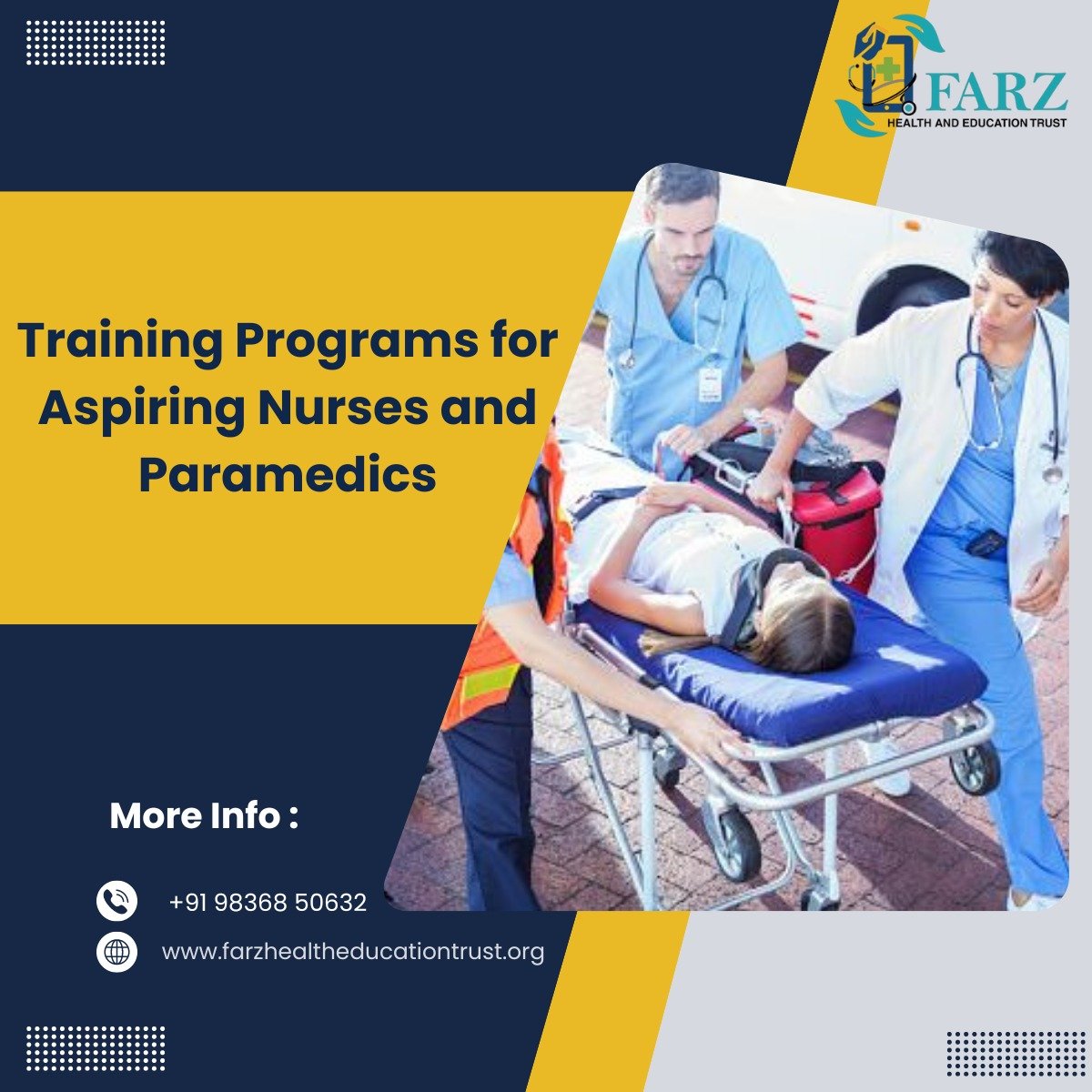
Nursing and paramedics are two of the most vital professions in healthcare. These roles demand not only compassion but also a high level of skill and knowledge. Aspiring nurses and paramedics must undergo rigorous training programs to prepare for the challenges of their careers. In this blog, we will explore the significance of these training programs, what they typically include, and how they can set the foundation for a successful and fulfilling career.
Why Training Programs Are Crucial
First and foremost, the importance of proper training cannot be overstated. Nurses and paramedics often find themselves in life-or-death situations, where quick thinking and decisive action are critical. Training programs equip them with the essential skills needed to handle such scenarios effectively. Moreover, these programs instill a deep understanding of medical procedures, patient care, and emergency response, all of which are necessary for providing high-quality care.
Furthermore, training programs help in building confidence among aspiring healthcare professionals. When nurses and paramedics are well-trained, they are more likely to perform their duties efficiently and with greater assurance. This confidence is not only beneficial for the professionals themselves but also for the patients who rely on their expertise.
Learn more about A Day in the Life of Our Home Care Services
What to Expect in a Training Program
Typically, training programs for nurses and paramedics are comprehensive and cover a wide range of topics. For nurses, the curriculum often includes subjects like anatomy, physiology, pharmacology, and patient care techniques. On the other hand, paramedic training focuses more on emergency medical services (EMS), trauma care, and advanced life support.
Moreover, both programs usually combine classroom instruction with hands-on clinical experience. This blend ensures that students not only understand the theoretical aspects of healthcare but also know how to apply them in real-world situations. Additionally, most programs emphasize the importance of soft skills such as communication, teamwork, and empathy, which are crucial in any healthcare setting.
In addition to the core subjects, training programs also offer specialized courses. For instance, nurses can choose to specialize in areas like pediatric care, oncology, or critical care. Similarly, paramedics may receive advanced training in areas like cardiac support or disaster management. These specialized courses allow students to tailor their education according to their career interests.
The Role of Certification and Licensing
Once the training is complete, aspiring nurses and paramedics must obtain certification and licensing before they can practice. This process typically involves passing a series of exams that test their knowledge and skills. For nurses, the Indian Nursing Council (INC) Exam is the standard, while paramedics often take State Paramedical Council Exams.
The certification and licensing process serves as a quality control measure, ensuring that only qualified individuals enter the healthcare profession. It also provides a sense of accomplishment and validation for the aspiring professionals, marking the culmination of their hard work and dedication.
The Benefits of Continuing Education
Training does not end with certification. In fact, continuing education is an essential aspect of a healthcare career. The medical field is constantly evolving, with new treatments, technologies, and protocols emerging regularly. Therefore, nurses and paramedics must stay updated to provide the best care possible.
Continuing education programs offer professionals the opportunity to expand their knowledge, learn new skills, and stay current with industry trends. Many of these programs are available online, making it easier for working professionals to balance their education with their job responsibilities.
Farz Health and Education Trust: Empowering the Next Generation of Healthcare Professionals
At Farz Health and Education Trust, the focus is on providing high-quality training programs tailored to the needs of aspiring nurses and paramedics. The organization offers a blend of classroom instruction and hands-on clinical experience, ensuring that students are well-prepared for the demands of their chosen careers. Additionally, Farz Health and Education Trust emphasizes the importance of continuing education, offering various programs that help healthcare professionals stay updated with the latest industry developments. Their commitment to excellence makes them a leading choice for anyone looking to enter the healthcare field.
